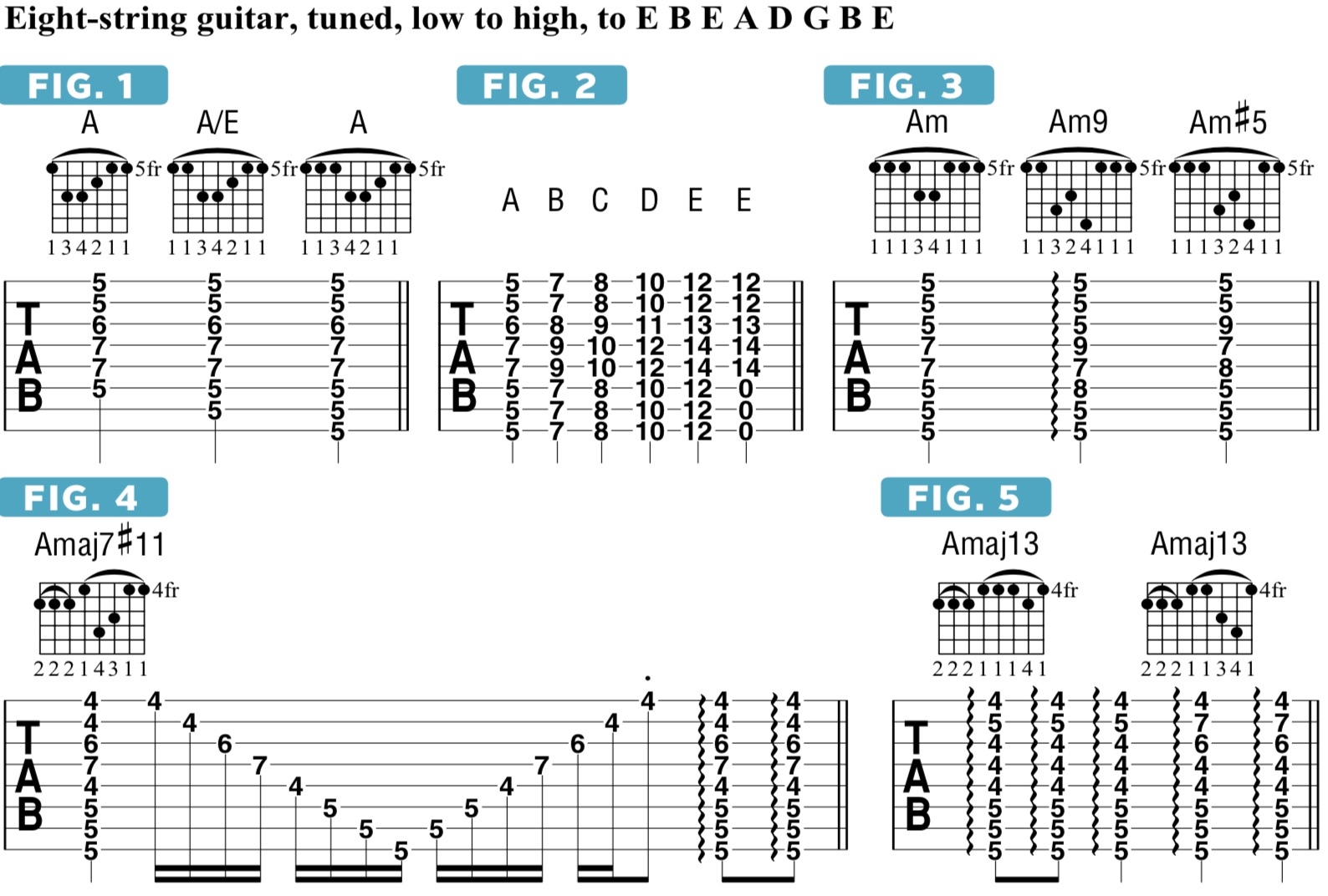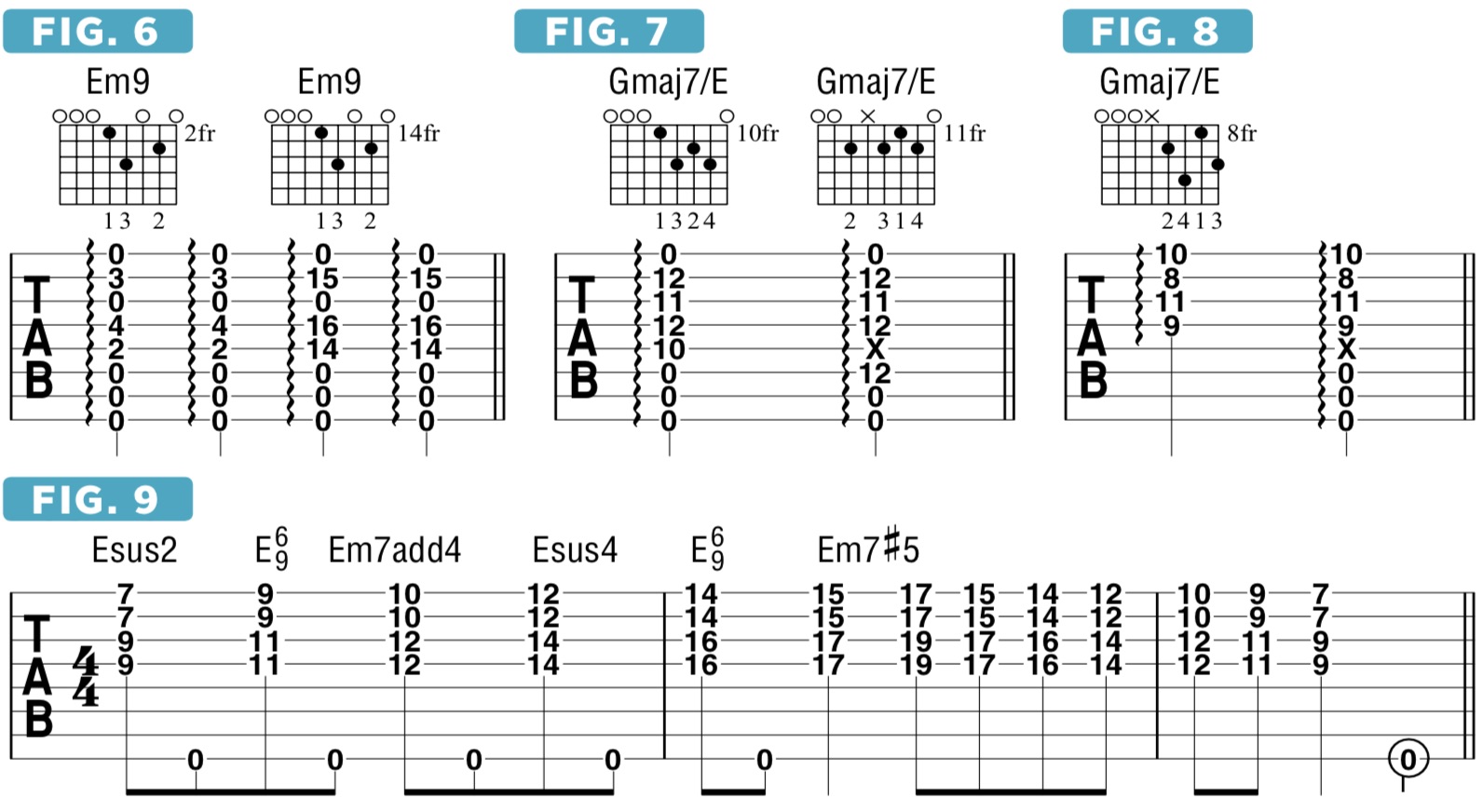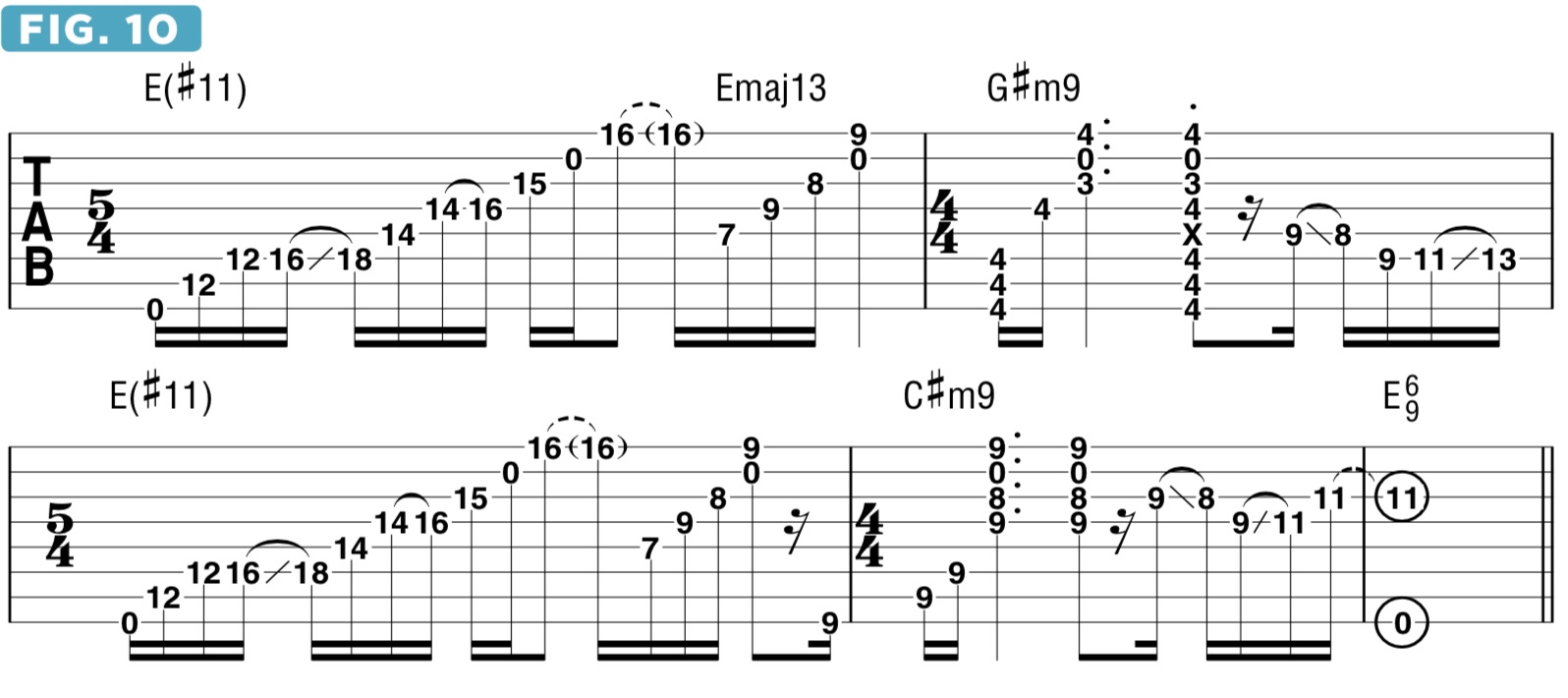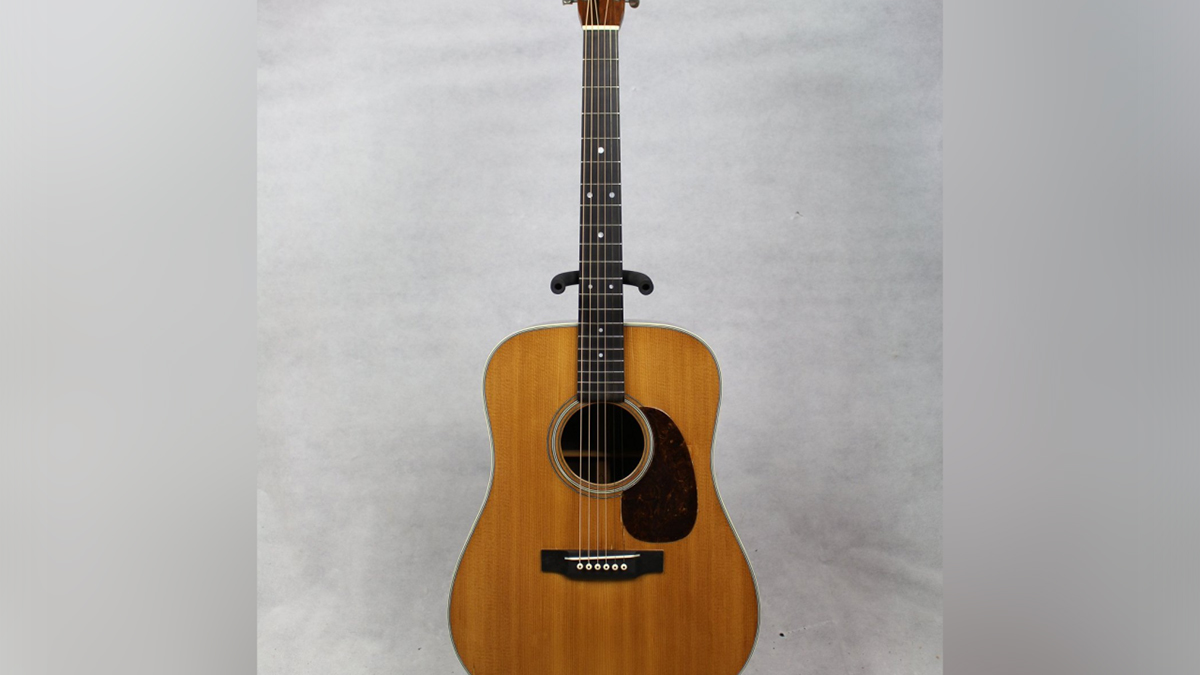8-string guitar chords: how to unlock new voicings
Tosin Abasi demonstrates a number of different voicings guitarists can create on an eight-string
All the latest guitar news, interviews, lessons, reviews, deals and more, direct to your inbox!
You are now subscribed
Your newsletter sign-up was successful
One of the reasons I have chosen an 8-string guitar as my main instrument is that I love having access to the extended pitch range and chord voicing possibilities offered by the additional two lower strings. I tune my eight-string, low to high, to E B E A D G B E. This way, my lowest string is an E, an octave below the sixth string, and the seventh string is B, as it normally is on a seven-string guitar.
The most obvious way to illuminate why this tuning is useful is by starting with a normal major barre chord. In FIGURE 1, I begin with A major played on the sixth through first strings. I can also barre my index finger across the seventh and eighth strings to conveniently fill out the sound of the chord. In FIGURE 2, I ascend from A up to E at the 12th fret. This E barre chord can alternatively incorporate the open bottom three strings, with fretted notes played across the top five strings.
Using this as a starting point, I can build a great variety of chords by keeping the index-finger barre and moving my other fretting fingers around. In FIGURE 3, I start with a standard Am chord and move to somewhat unusual Am9 and Ams5 chords. For the latter two voicings, be sure to place your fret-hand thumb squarely on the center of the back of the neck to accommodate the wide stretches.
A favorite chord of mine is Amaj7#11. FIGURE 4 illustrates two voicings that I often use for this chord. For each, be sure to pick each note individually to check that all of the strings ring clearly. Likewise, FIGURE 5 offers two different ways to voice another harmonically rich-sounding chord, Amaj13.

A technique I employ often is to fret chord voicings on the higher strings while incorporating the open lower strings. This approach can yield some unusually broad voicings, such as the Em9 shown in FIGURE 6, and the Gmaj7/E voicings shown in FIGURE 7 and 8. Notice in these latter examples that I include open higher strings as well, which, to my ear, provides some beautiful chordal options.
Another technique I like to explore is to take a static voicing (one in which the "grip" stays the same) and simply move it up or down the fretboard, as in FIGURE 9.

A great example of my incorporation of eight-string voicings can be heard in the song, “Point to Point,” from the first Animals as Leaders album. It’s based on the arpeggiated Bmaj7/E voicings shown in FIGURE 10. This phrase is performed with a combination of sweep picking and alternate picking.
All the latest guitar news, interviews, lessons, reviews, deals and more, direct to your inbox!

